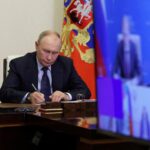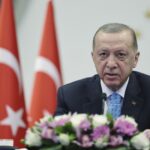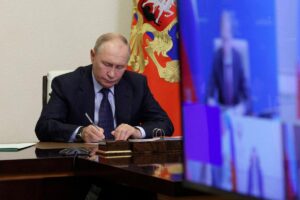Former Japanese Prime Minister Shinzo Abe died aged 67 after being shot while making a speech in the western city of Nara.
Abe was shot in in the city of Nara on Friday, reported Japan’s NHK. Preliminary reports stated that the former Japanese premier was seen bleeding and had collapsed on the site. Abe was rushed to the hospital and the suspect has been arrested.
Abe was giving a speech in the city of Nara when gunfire was heard around 11:30 a.m. (10:30 p.m. Thursday ET). Public broadcaster NHK, citing the local fire department, reported that Abe was in a state of “cardiopulmonary arrest.”
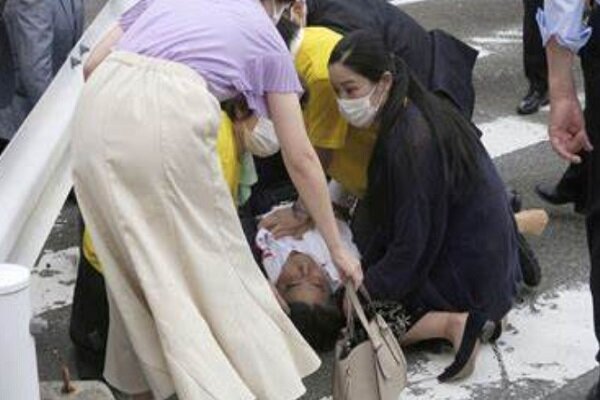
In brief on-camera remarks, Chief Cabinet Secretary Hirokazu Matsuno said Abe’s condition remained “unknown” and that one person had been apprehended in relation to the shooting.
Elections for the upper house of the Japanese Parliament are Sunday. Abe, 67, who stepped down in 2020, was campaigning for other members of the governing conservative Liberal Democratic Party but is not a candidate himself.
Japanese Prime Minister Fumio Kishida had said that former PM Shinzo Abe is in critical condition. “It is barbaric and malicious and it cannot be tolerated. We will do everything we can. At this moment, doctors are working very hard to save Mr Abe,” Kishida added. Abe was shot by a man from behind during a speech in Nara city.
According to reports, the person who shot Abe is a 40-year-old former sailor of the Self-Defense Forces (Japanese Army) and a resident of Nara.
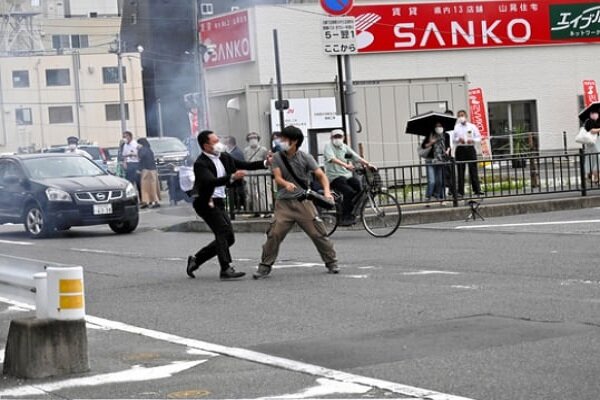
The motive behind the shooter’s action is still unknown while the reports suggest he shot Mr. Abe twice in the back.
The Japanese media say that the former PM received gunshot wounds on the left side of chest and neck.
The assassination attempt on Japan’s longest serving prime minister came nearly two years after he resigned from the post due to health conditions.
Shinzo Abe had become the youngest Prime Minister of Japan in 2006 at the age of 52 but his tenure abruptly ended a year later because of his health. In December 2012, he again returned to power and prioritised economic measures over his previous nationalist agenda. Since then he won six national elections and held a tight grip over his power.
In a statement on Friday, Iran foreign ministry spokesman Nasser Kanani strongly condemned the assassination.
Source : MEHR


